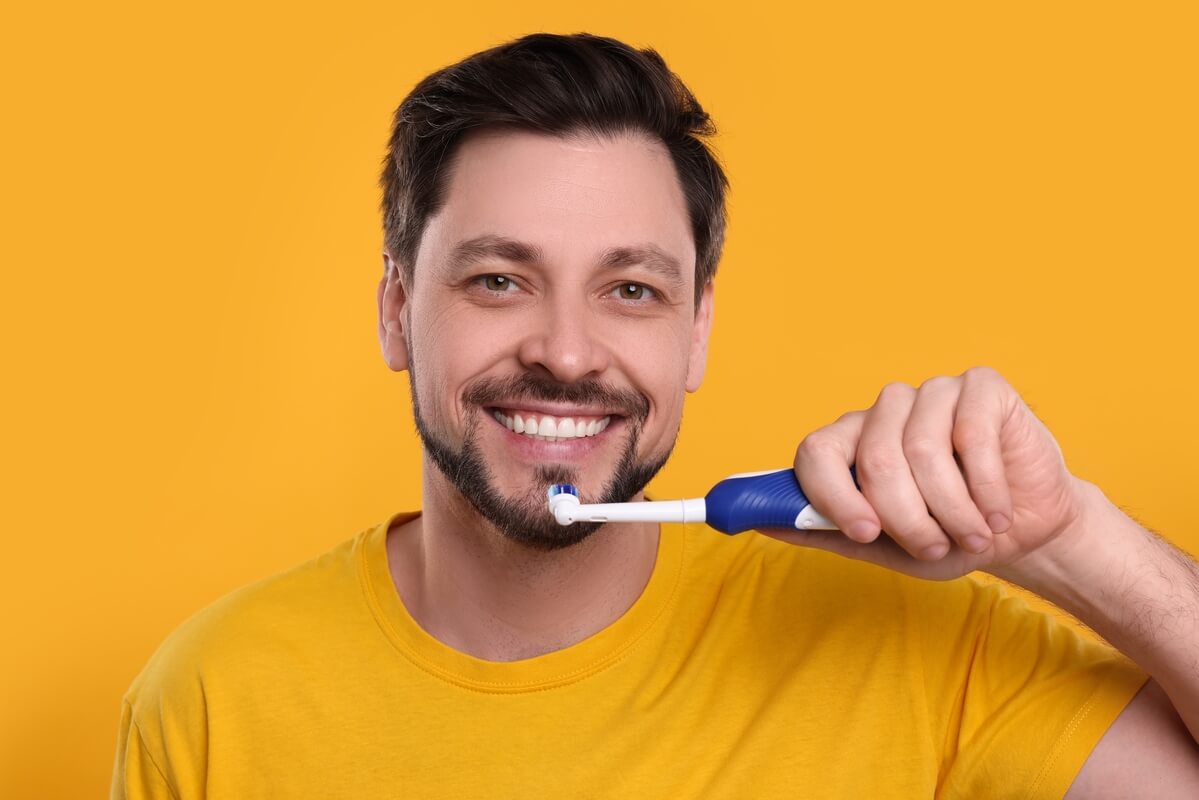Do you ever wonder if electric toothbrushes are better than manual ones? With so many different types of toothbrushes available in the market, deciding which one to use can be overwhelming. However, choosing the right toothbrush can make a huge difference when it comes to maintaining excellent oral health.
In this blog post, we’ll explore the differences between electric and manual toothbrushes and help you determine which type of toothbrush best fits you.
Why Is Switching To An Electric Toothbrush The Best Decision For Oral Health?
We will discuss the advantages shared by electric toothbrush users over a manual one and why switching to it is the best option for your dental health.
Superior Cleaning Performance
Electric toothbrushes are designed to provide superior cleaning performance compared to manual toothbrushes. The bristles on an electric toothbrush head move significantly faster, providing more thorough cleaning than your hand can achieve. The back-and-forth oscillation or circular motion of the electric brush helps to loosen plaque, remove stains, and provide a deep clean that is difficult to achieve with a manual brush. Moreover, electric toothbrushes are designed with timed brushing features to ensure that the correct amount of brushing time is achieved to ensure optimal cleaning performance.
 Promotes Better Oral Health
Promotes Better Oral Health
Electric toothbrushes promote better dental health by removing plaque and preventing gum disease. The electric brush provides better control over the brushing pressure to avoid damage to the tooth enamel and gum tissue. It also helps stimulate gums better, reducing the risk of gum disease and tooth decay risk. Additionally, electric brushes are designed to tackle hard-to-reach areas that may be difficult to access when using manual brushes. An electric toothbrush will keep your teeth clean, healthy, and disease-free.
Correct Brushing Technique
Electric toothbrushes promote an improved brushing technique by providing real-time feedback to the user. They are equipped with pressure sensors, which alert you when you are brushing too hard, and the feedback reminds you to brush all areas of your mouth. The timer that comes with the product guarantees that you brush for the recommended optimal two-minute cleaning. That helps to improve your overall brushing experience and can assist in preventing damage, such as abrasions to the teeth and gums.
Perfect for All Ages
Electric toothbrushes are suitable for all ages and can be a valuable tool when teaching children how to brush their teeth correctly. With a range of brush heads designed for adult teeth, infant teeth, and toddler teeth, electric toothbrushes can offer a superior brushing experience for people of all ages.
Better Accessibility
For people with disabilities or mobility issues, daily routines like brushing their teeth can be a challenge. The use of manual toothbrushes can pose an even greater obstacle, making it difficult for them to clean their teeth effectively. That is where electric toothbrushes come into play. They can be a game-changer regarding accessibility, providing a more efficient way to clean teeth without putting unnecessary strain on the wrist and hand.
They are ideal options for those with disabilities or manual dexterity issues—those who may struggle to reach certain areas of their mouth. By using an electric toothbrush, they can maintain good oral health and enjoy fresh breath and a clean smile.
Manual Toothbrushes: Are They Still Relevant?
Manual toothbrushes offer some benefits that electric toothbrushes cannot. For instance, manual toothbrushes are less expensive than electric ones and can be easily replaced when they become worn out. Additionally, manual toothbrushes are portable and do not require charging, making them very convenient for travel. While manual toothbrushes still do a great job cleaning teeth, they need more effort and skill to use properly than electric toothbrushes.
Limitations Of Manual Toothbrushes
Manual toothbrushes have been a staple in oral hygiene routines for generations. Unfortunately, they come with their own set of limitations regarding overall effectiveness. One of the main drawbacks is difficulty accessing harder-to-reach areas, particularly in the back of the mouth. Additionally, users often apply too much pressure during brushing, leading to gum recession and even tooth enamel erosion. While they may be a more budget-friendly option, these limitations can hinder the efficacy of one’s oral hygiene regimen. With technological advancements, it may be worth considering switching to an electric toothbrush for a more thorough and gentle cleaning.
Understanding the Cost Factor
Investing in an electric toothbrush may feel like an unnecessary expense, but the benefits can make it a cost-effective choice in the long run. Firstly, electric toothbrushes have a longer lifespan than manual ones, meaning you won’t have to replace them as frequently.

Electric toothbrushes providing more effective cleaning than manual ones could minimise these costs. Ultimately, it’s possible that investing in an electric toothbrush could be a prudent financial decision in addition to the oral health benefits it brings.
The Different Types of Electric Toothbrushes
There are two main types of electric toothbrushes available – oscillating-rotating and sonic. The oscillating-rotating toothbrushes have small, round heads that spin around each tooth, while the sonic toothbrushes deliver a high-frequency vibration to loosen plaque and bacteria. Both types of toothbrushes offer great cleaning benefits, but sonic toothbrushes may be more suitable for individuals with sensitive teeth or those who prefer a gentler cleaning motion.
Which Toothbrush is Right for You? A Manual Or Electric Toothbrush
Choosing the right toothbrush largely depends on your individual needs and preferences. If you want a toothbrush that will give you better cleaning power and convenience, an electric toothbrush is likely your best bet. However, if you travel frequently or prefer a less expensive option, a manual toothbrush may be more suitable for you. Ultimately, the quality of your oral hygiene depends on how well you use your toothbrush, so choose the one you can use most effectively.
Conclusion
If you’re deciding between an electric toothbrush or a manual toothbrush, what’s most important is that you use a toothbrush properly and consistently as a part of your daily oral hygiene routine. While electric toothbrushes have some advantages over manual ones, both types can help keep your teeth and gums healthy. Use the information in this guide to decide which type of toothbrush is the best fit for you and ensure that you maintain the best oral health possible.
Are you looking to take your dental health to the next level? Look no further than Infinity Dental Care’s e-shop for a high-quality electric toothbrush combined with a water flosser. Investing in an electric toothbrush means you can expect a brighter, healthier smile in no time.
Order your electric toothbrush today and take the first step towards a healthier, happier smile! Call us at (02) 9159 6237.
References
Is It Worse to Skip Brushing Your Teeth or Flossing?
https://www.healthline.com/health/dental-and-oral-health/is-it-worse-to-skip-brushing-your-teeth-or-flossing
Electric Toothbrushes: Are They for You?
https://www.webmd.com/oral-health/features/electric-toothbrushes
Powered versus manual toothbrushing for oral health – PMC
https://www.ncbi.nlm.nih.gov/pmc/articles/PMC7133541/


 Promotes Better Oral Health
Promotes Better Oral Health